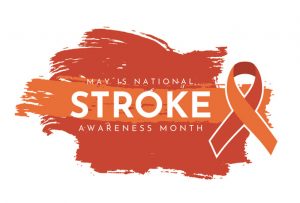 Did you know stroke accounts for about 1 out of every 19 deaths, ranking No. 5 among all causes of death in the United States?
Did you know stroke accounts for about 1 out of every 19 deaths, ranking No. 5 among all causes of death in the United States?
According to the American Heart Association and American Stroke Association, on average, someone suffers a stroke every 40 seconds and someone dies of a stroke every four minutes.
The speed of receiving medical treatment is critical in lessening the potential impact of brain damage, and using the reference words B.E.F.A.S.T and M.A.N.G.O just might make the difference between life and death, or permanent disability.
First introduced in the United Kingdom in 1998, B.E.F.A.S.T is used to help detect if a person is having a stroke and increase the responsiveness to seeking medical attention. “If you do not seek help immediately, the central area of the brain will die within minutes. When patients are concerned about stroke, they need to B.E.F.A.S.T to recognize symptoms and seek medical treatment as quickly as possible. Says Sarah Strzalka, Director of Stroke Services at Physicians Regional Healthcare System.
The American Stroke Association recommends utilizing B.E.F.A.S.T to help determine whether a person is having a stroke and whether to seek medical attention immediately.
(B) Balance – Watch for sudden loss of balance
(E) Eyes – Check for vision loss
(F) Face – Is there any facial asymmetry?
(A) Arm – Is one arm weaker or more numb than the other? Does one arm drift downward when a person tries to raise both arms?
(S) Speech – Is there any difficulty with speech?
(T) Time – If so, it’s time to call 911
M.A.N.G.O is a mnemonic being used at Physicians Regional for screening symptoms of a large vessel occlusion, a clot in one of the main arteries in the brain that can cause a stroke. If a patient presents signs and symptoms of a stroke, the emergency room will alert staff overhead of a Stroke Alert. If that patient’s imaging (CT) shows a suspected large vessel occlusion, then a M.A.N.G.O alert will be called.
“This signals team members involved in a neuro-interventional radiologic procedure to report to the procedure suite,” says Strzalka. “Additional IV sites are placed and advanced imaging is added. A neuro-interventionalist is a neurologist with specialized training in the use of minimally invasive, image-guided techniques to treat complex conditions of the brain, neck, and spine and are available 24/7 to view the scans. This allows for a decision to be determined almost immediately after the CT scan.”
M.A.N.G.O identifies a patient experiencing:
(M) Motor Weakness – Weakness in the arms or legs, usually on one side of the body.
(A) Aphasia – Does the patient have the ability to understand or express speech? Expressive speech is being able to name two objects. Receptive is being able to follow two commands.
(N) Neglect – Is the patient unable to feel both sides at the same time, or unable to identify their own arm, or ignoring one side?
(G) Gaze Preference – Does the patient have the inability to track an object or are they experiencing double vision?
(O)-Optic Field – Is the patient’s optic field cut (partial blindness) or are they experiencing any new blindness?
No matter which mnemonic is used in stroke care, time is of the essence when it comes to recognizing symptoms and seeking treatment.
“Large vessel occlusions can be very debilitating if not caught and treated in a rapid amount of time.” says Strzalka. “Every hour treatment is delayed for a large vessel ischemic stroke, 120 million neurons are lost. The goal of our stroke team is to have patients suffer minimal deficits.”
Most recently, Physicians Regional Pine Ridge was awarded with the Joint Commission Disease Specific Certified Thrombectomy Capable Stroke Center and the Physicians Regional Collier Boulevard campus was awarded with the Joint Commission Disease Specific Certified Primary Stroke Center.
Physicians Regional Pine Ridge has received the American Heart Association/American Stroke Association’s Get With The Guidelines®-Stroke Gold Plus Quality Achievement Award. The award recognizes the hospital’s commitment to guaranteeing stroke patients receive the most appropriate treatment according to nationally recognized, research-based guidelines based on the latest scientific evidence.
In addition to the aforementioned award, Physicians Regional Pine Ridge’s Thrombectomy Capable Stroke Center also received the Association’s Target: Stroke Honor Roll Elite and Target: Type 2 Honor Roll awards. To qualify for these recognitions, hospitals must meet quality measures developed to reduce the time between the patient’s arrival at the hospital and treatment with the clot-buster tissue plasminogen activator, or tPA, the only drug approved by the U.S. Food and Drug Administration to treat ischemic stroke.
Physicians Regional emergency departments offer 24-hour care by board-certified physicians, and are located at
Physicians Regional– Pine Ridge, 6101 Pine Ridge Road and Physicians Regional –Collier Blvd, 8300 Collier Boulevard.









